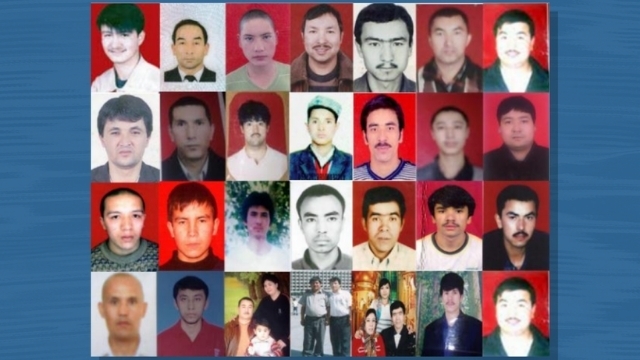
A montage of the disappeared from the Urumqi riots, assembled by the Uyghur Human Rights Project.
Peace turned to fury on the streets of Urumqi twelve years ago after protests over the killing of Uyghur factory workers in inner China fell on deaf ears. Later that evening merciless summary retaliatory justice was meted out by Chinese troops that mowed down hundreds of Uyghur civilians, as witnessed by Risalat, a Uyghur eyewitness, their bodies piled onto trucks and disappeared.
This week thousands of exiled Uyghurs gathered around the world to remember the dead and to pursue justice for their people, who are even now being herded into camps and sentenced extra-judicially to crippling prison terms. Their homeland groans under Orwellian surveillance and human rights abuses are de rigeur both inside and outside the camps.
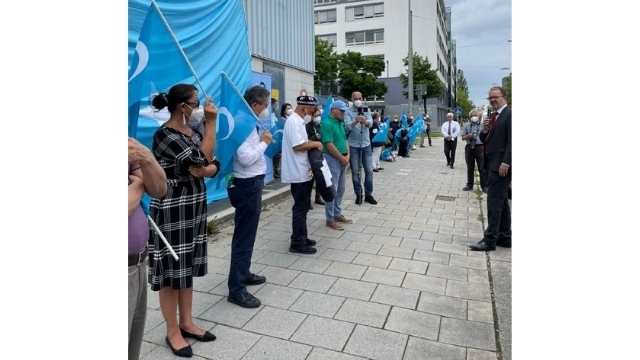
The Uyghur diaspora is growing increasingly impatient and despondent over the fate of its people who languish in internment or forced labor, while Beijing’s denial of its crimes against humanity gathers supporters around the world, wooed by its economic and political clout, and paralyzed by fear of sanctions by the superpower.

Protesters and their supporters in France, Belgium, Japan, the UK, Kuwait, Turkey, Malaysia and Germany took to the streets of their capitals to demand the CCP free their compatriots and foreign governments take the fate of their people seriously by facing up to the monolith.
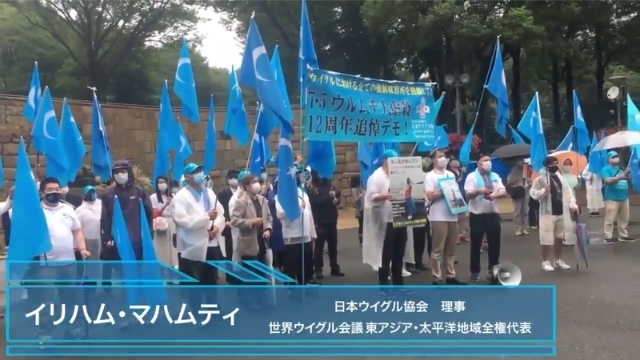

Rahima Mahmut, director of the World Uyghur Congress in London, addressed the closed windows and drawn curtains of the Chinese Embassy across the road. She pleaded for answers to the whereabouts of the disappeared from the riots in 2009, and for answers to questions every Uyghur has today about the fate of their loved ones in the homeland. She quoted Patigul Ghulam, the mother of a boy who was taken away in 2009, who had called Radio Free Asia in 2014 with her story and begged for help on behalf of all the other mothers who had lost sons and daughters. She told the radio station that she was just one of the many mothers who were still searching for their children.

That telephone call was the last time the outside world would ever hear from Patigul again. “Later she was detained and completely silenced,” said Rahima. “The painful reality is that the violent repression is far from a memory,” she said. “We could not have imagined the lengths the Chinese Communist Party would go to destroy our community and erase our culture,” she said, highlighting the powerful effect of the events of July 5, 2009, which were to signal the “turning point” in CCP persecution and where enforced disappearances would point to an incremental genocide of her people.
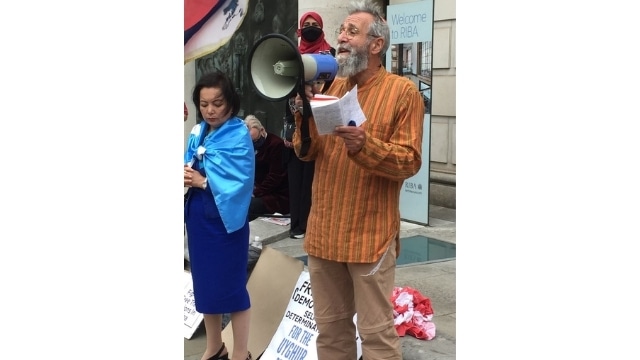
“My people cannot practice their culture without fear of retribution in their own country,” she said, citing the catalogue of human rights abuses being wreaked on the Turkic peoples of Xinjiang which is now so familiar to the world. She described the atrocities as the “worst kinds of crimes against humanity imaginable.” Highlighting the recent Amnesty International report, she concurred with its findings that her homeland has become a “dystopian hellscape” for “hundreds of thousands of Muslims, subject to mass internment and torture.”

She berated the international community for its indifference and silence after the extra-judicial arrests and killings following the July 2009 riots, which, she said should have been a “wake up call” to the world. “Instead, many averted their eyes,” she said. “The Chinese regime was not held accountable, Uyghurs continued to disappear and the victims never got the justice they deserved.” She continued, “the free world’s refusal to act gave the Chinese government the confidence to carry out the genocide my people are facing in broad daylight.”
She called on the global community, governments, politicians and corporations to avoid making the same mistakes again. “This has been the darkest twelve years in our collective history,” she said, adding that Uyghurs were not the only victims of Chinese Communism. Its 100-year record of crimes were committed not only against Turkic races but Mongolians, Tibetans, Hongkongers and any Han Chinese who dared to challenge the regime, she pointed out.
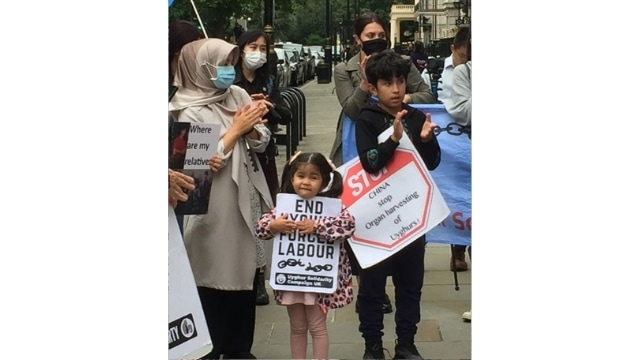
She saw a flicker of hope that the world was beginning to wake up to the injustices. “We are making powerful allies,” she concluded. “We are standing in solidarity with each other, and will fight to make our voices heard.”
https://bitterwinter.org/uyghurs-remember-the-urumqi-massacre-of-2009/

